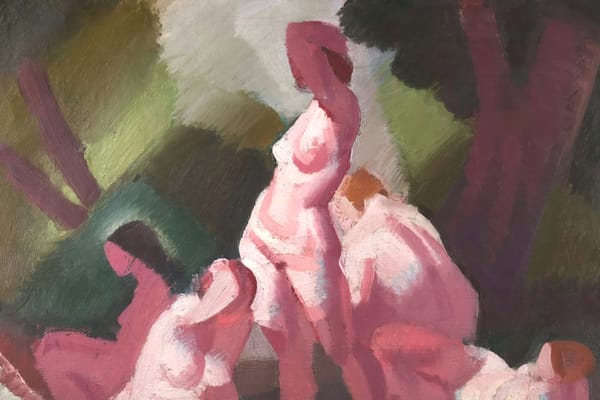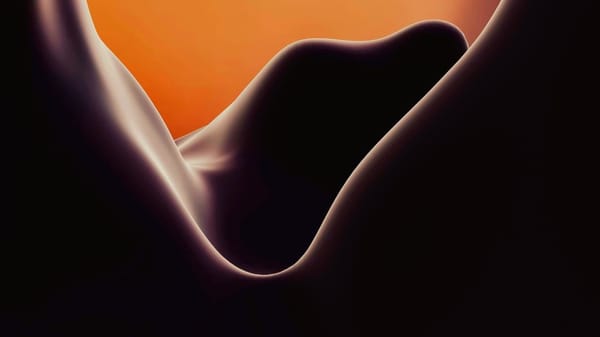Review: 'That Broke into Shining Crystals' by Richard Scott
Does the disintegration of form reveal a more authentic kind of expression, or merely its limits?

The trauma that curls in the gut of That Broke into Shining Crystals is both solidified and splattered across relics of life—past and present. Still life paintings soak up its dye, devouring its “dense sweet-meat bloom,” while stones and crystals stretch its skin over their once-molten cores.
It’s a vicious wrestle, like the brutal tangle of animal bodies glimpsed in mute shock in nature’s quiet corners. But the sharpest wounds are inflicted on language itself. It’s both mutilated and rebuffed, lashing between lexical and syntactical ruin (”Thus I go slow. I song last. Least. The lower.”) and a plainness that rejects poetic provocation (”I will not wrap this up in pretty words”).
All the while, a droning moan hums in the background, part strained sentiment (”His love was this kind of grinding”), part entrapment of its resolution within a body that is a sentence, a word, “a symptom.”
It’s only natural, then, that Scott’s poetry evolves into a kind of “exorcism.” Its repetitive nature, though draining at times, serves as an invocation. Still life becomes the vessel that holds “all the little red / apples of [himself],” emerging as “a kind of ghost” that manipulates “repetitive and distressing images. / All the glistening and painful / reds beginning to move, to run.”
The mind’s response to pain, so deeply embedded in life’s forms, is both disturbed and disturbing. Here, language floats between softness and incision—tender but sharp to the cut. At times, it conjures no images except for the image of the word itself, clinging to its own fragmentation.
And so, That Broke into Shining Crystals captures a fully embodied state of rage that exists in conversation with exhibition notes, lectures on desire, paintings, poems—one even shaped as a mind-raking vocabularyclept—and other pieces whose limits evoke a sense of illicit being.
In binding his poems together, Scott points a gentle finger at the constraints of expression, and how true experience—uncontainable within the tidy languages of structured being—is ultimately failed by it.
Yet neither the unravelling of the self nor of its voice is rendered powerless. Restraints, once sensed, are licked and prodded into inevitable submission. Because while change is irreversible, it's also persistent.
In the end, That Broke into Shining Crystals doesn’t attempt to mend or resolve the fractures it exposes; instead, it thrives in the tension of brokenness, where language refuses to hold. Scott’s poetry forces the reader into a space where experience shifts and slips, never quite caught.
It’s not a work that seeks answers but one that embraces the unanswered, the jagged, irrepressible fragments of existence. Each word, each image, is a wound that will not close, an echo that cannot be muffled. In this perpetual state of rupture, language becomes both subject and casualty—forever unsettled, forever freed.
An advance copy was provided by Faber & Faber.
Mood Meter
🌓🌒🌓🌕🌓

Genres
Poetry & Verse
LGBTQ+
Publication Date
April 22, 2025
(Kindle available from February 11, 2025)




